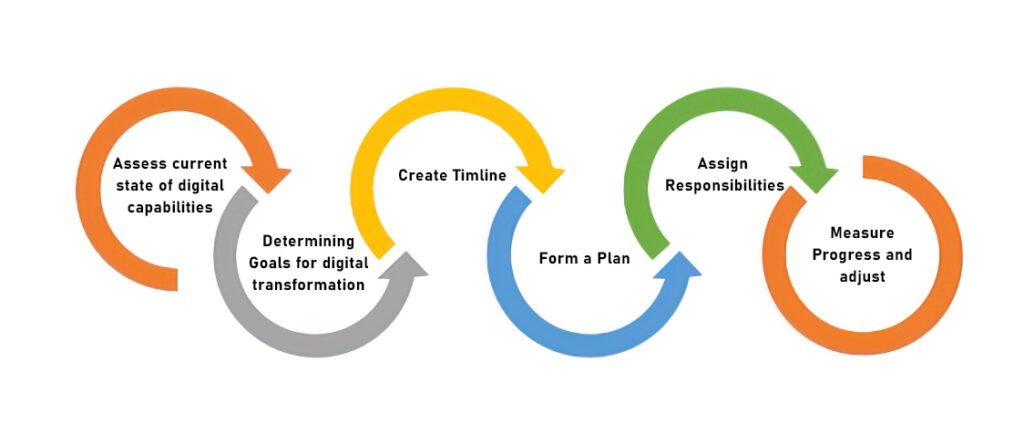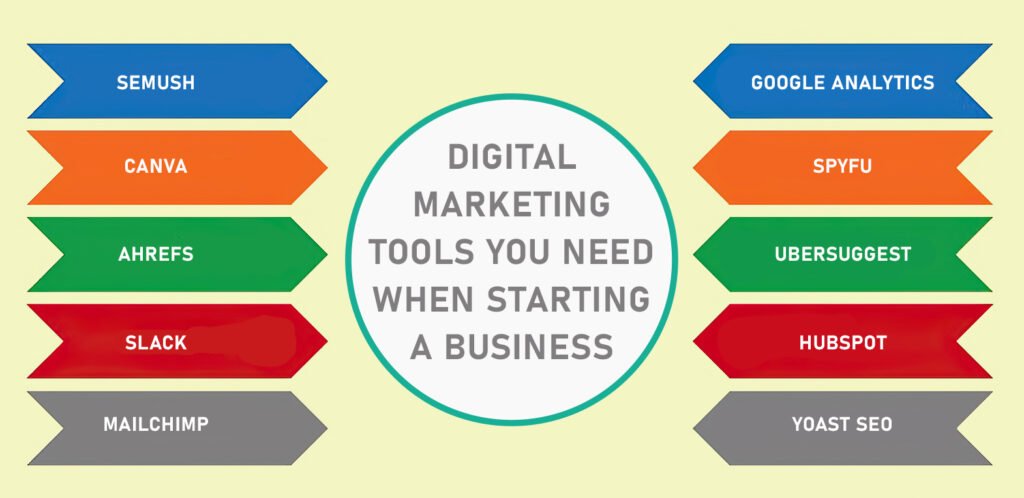We are moving towards the digitally focused world; it’s no surprise that companies are shifting their focus towards digital transformation. This shift in the company brings about more benefits for companies of all sizes. Let’s explore the importance and benefits of digital transformation in 2023.
Why is Digital Transformation important?
Every company is willing for business transformation to get more customers and support their business processes when technology makes every single process more efficient than they attain digital maturity.
- Digital transformation begins with small initiatives; only a few companies can attain digital maturity.
- Digital adoption is one of the easiest ways to do so. Such transformation allows the company to o leverage technology to improve its operations, enhance customer experience, and increase its competitive advantage.
- It begins with the working practices that help businesses benefit from new technology, forming more efficient processes and developing an approach to customer-centric services.
The company’s leaders embrace digital transformation across the organization by keeping a new way of thinking and forgoing new digital transformation strategies that help them stay ahead in a competitive market.
Important information you shouldn’t miss
- Global Spending on Digital Transformation in 2026 is estimated to reach 3.4 trillion U.S. dollars.
- As of 2022, Denmark ranked as the most digitally competitive country globally.
Digital Transformation Benefits
Digital transformation benefits are helping companies in different manners in growth and success. It assists the business in leveraging digital technologies that can reduce costs, enhance operational efficiency, offer better clients services, form new revenue streams and provide customer experience. Businesses will be applying diverse digital transformation strategies in 2023.

Improved Efficiency
By embracing digital technologies, companies can streamline processes and automate repetitive tasks. It helps businesses save time and resources, permitting companies to emphasize important tasks more.
Every business wants to reduce the cost of business and improve efficiency, which is possible with improved asset tracking, resource allocation and strategic planning.
Enhanced Customer Experience
Digital transformation assists in improving customer experience to form a more personalized experience for their clients. By utilizing clients’ data, companies can tailor their offerings to meet their clients’ particular needs.
Most businesses use data to provide customers with buying journeys to offer the required services. Access to accurate client information helps the business optimize communication and product offerings for a personalized experience that makes the customers visit again.
Increase Revenue and Return on Investment (ROI)
Technology Adoption can assist businesses in increasing their revenue by reaching new clients and expanding their offerings.
- Companies can tap into new markets and form new revenue streams
- using digital technologies.
- On a small scale, digital transformation can remain very cheap, and costs can increase with a major transformation in the business.
- Most of the company’s CEO and Leaders are ready to take such risks on digital solutions by ensuring that investment of time and money will lead to positive results for them.
- Better returns on investment are visible through effective growth and business sales.
Effective Data Management
Digital transformation supports businesses in managing their data more effectively using advanced technologies. Companies must focus on managing client data; it offers opportunities to monitor, process, and analyze it.
Improved Agility
Proper implementation of the digital transformation strategy reflects a new agile mindset that helps the business become responsive to change.
- By embracing new technologies, businesses can quickly adapt to changes that integrate with the company’s workflow easily.
- Business gets a chance for a detailed monitoring system through which companies can quickly resolve unforeseen events and benefit from unseen opportunities.
- Responsiveness towards the change brings the company more client satisfaction and improved profits.
Competitive advantage
Digital transformation journey can assist businesses in gaining a competitive advantage within the industry. By embracing new technologies and forming innovative solutions, businesses can set themselves apart from their competitors.
Digital Transformation Challenges
Digital Transformation is a complex process, and implementation remains difficult for companies. It consists of integrating new technologies, redesigning business processes and changing the culture. Here are some common challenges linked with digital transformation: –
- Resistance to change for employees and stakeholders
- Lack of digital skills among employees leads to expenditure on learning and training
- Legacy systems and processes are outdated and difficult to integrate with new technologies
- Improving reliance on digital technologies
- Limited budgets may struggle to allocate the necessary resources
- Requires strong leadership support for proper working
- Integration issues with existing systems
Digital transformation roadmap
The Roadmap of the digital transformation strategy reflects the outline or steps the company needs to adopt for a successful digital transformation. Let’s have a look towards the required steps: –

- Assess the current state of digital capabilities: Review of company’s current technology system, evaluating client behaviour and engagement data. Evaluation of skills and experience of employees.
- Determining Goals for digital transformation: – setting goals that a business wants to achieve includes improving customer experience, enhancing efficiency, reducing costs, expanding into a new market and others.
- Create a timeline: – Companies need to form a timeline that accounts for factors like budget, resource availability, and constraints or limitations.
- Form a plan: – For each initiative in the Roadmap, develop outlines of specific tasks, timelines, and metrics for measuring progress. Planning might include activities like technologies, designing new business processes, and developing employee training programs.
- Assign responsibilities: – For the leaders, assigning responsibilities for any new task for each initiative becomes important. Ensuring that employees are taking participation in effective implementation.
Measure progress and adjust: – It’s important to measure the progress and adjust the Roadmap as required. It includes collecting and analyzing data on key metrics such as customer engagement and employee performance and making adjustments to initiatives or timelines as necessary to ensure success.
Final Thoughts
A digital transformation is no longer an option for businesses. By embracing digital technologies, organizations can unlock many more benefits. Indeed, most companies are undertaking digital transformation efforts as their leading IT priority in 2023.
You can visit our Adeptimize website to avail of all such benefits for your company. Contact us for more details about the Digital Transformation for your business.




